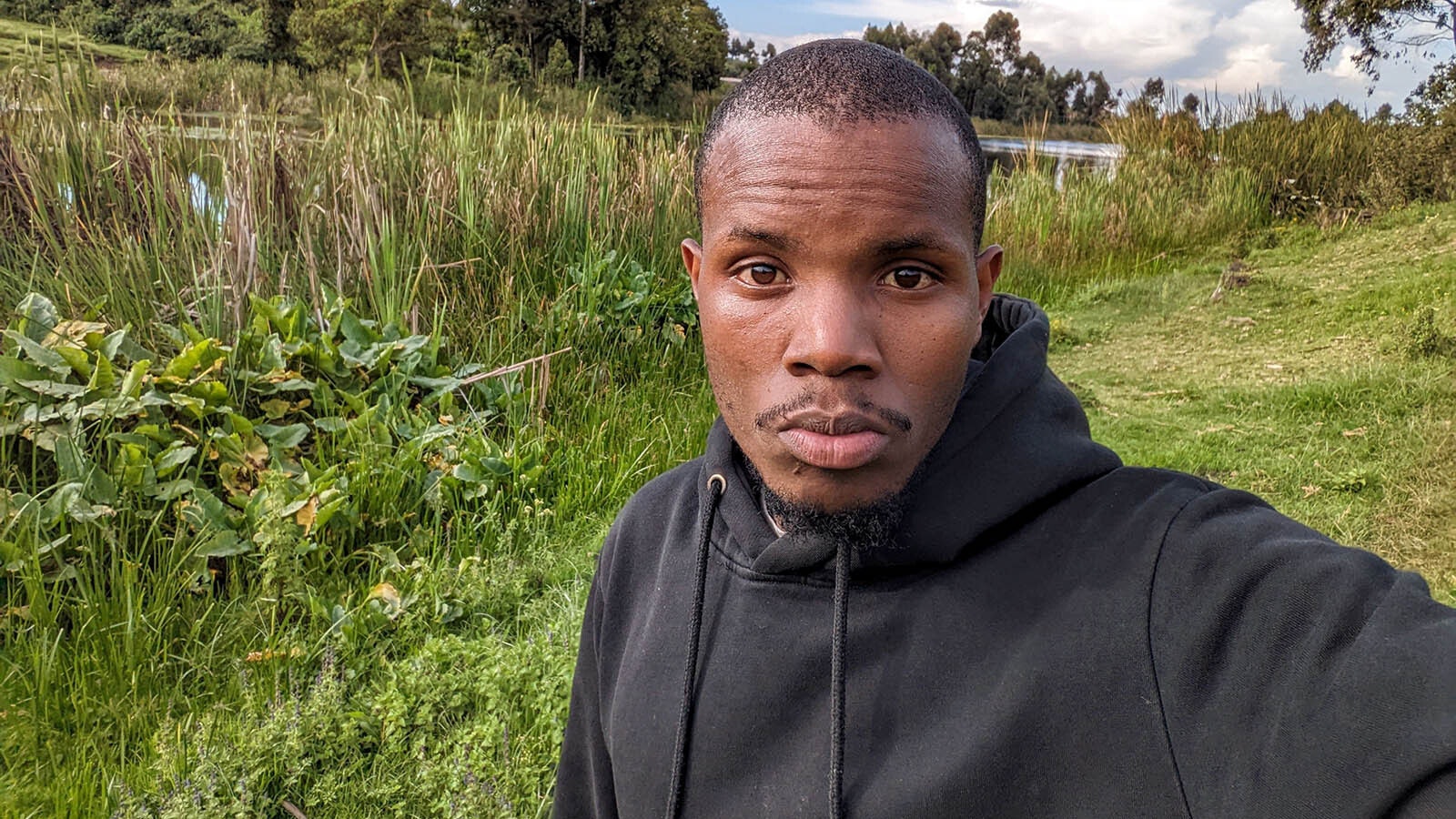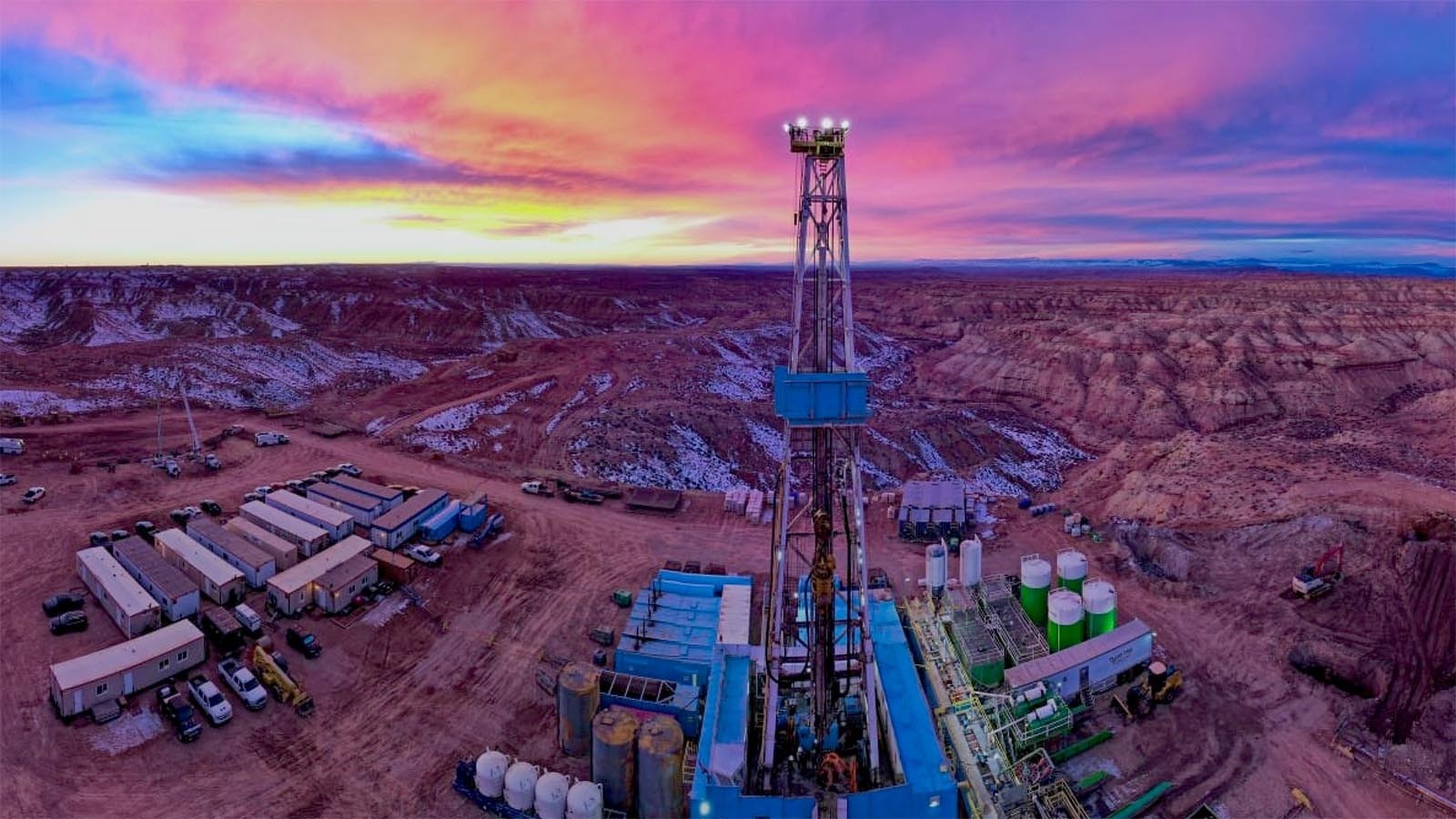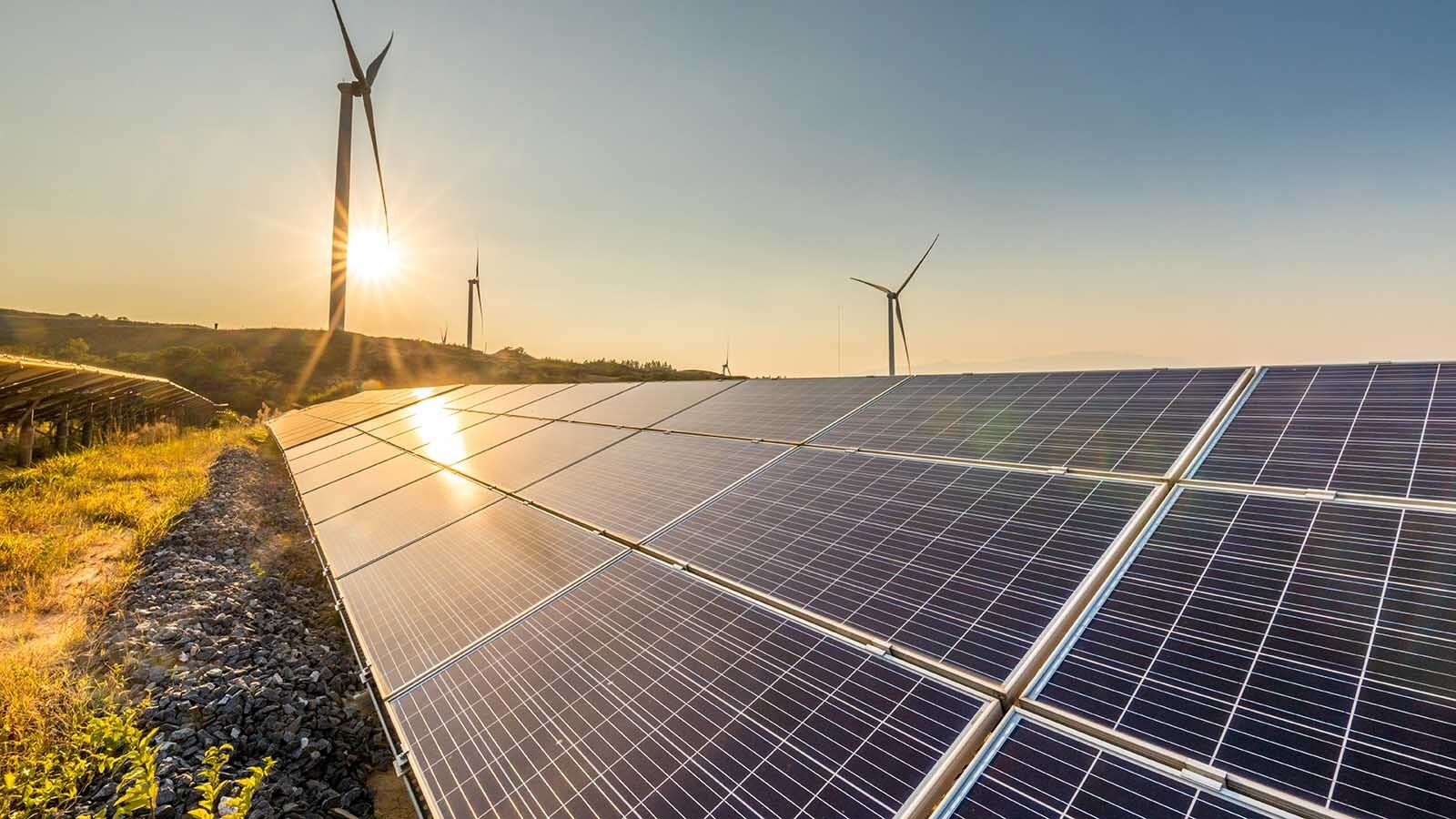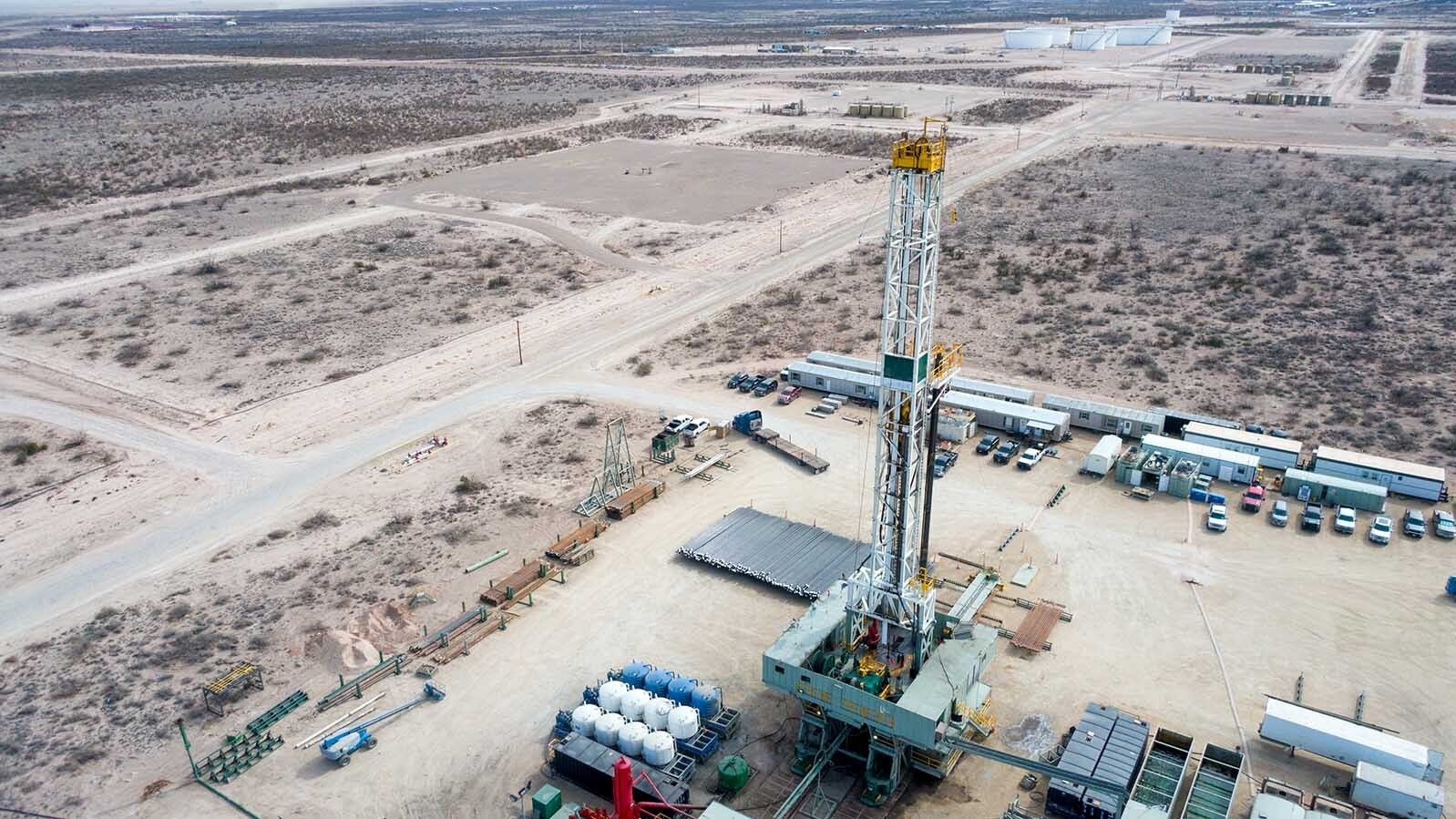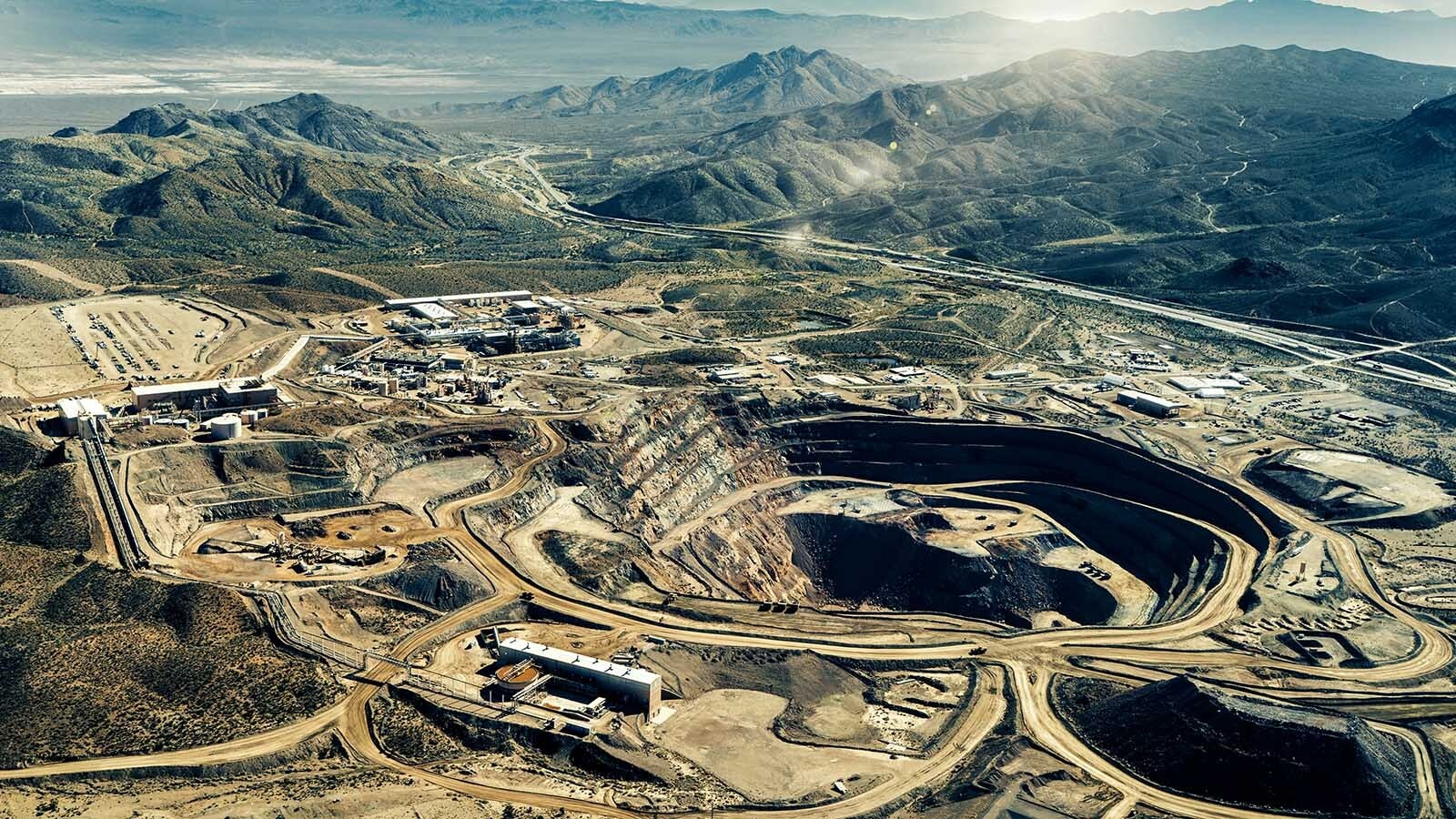Jusper Machogu, a farmer in the African country of Kenya, wants to see his homeland of Africa grow and prosper.
Here in Wyoming, farmers have machinery that allows one farmer to harvest food to feed 1,000 people. Diesel-powered semitrailers haul cattle hundreds of miles to feed lots. Machines dig hundreds of miles of canals to irrigate arid land that couldn’t otherwise grow anything.
In Sub-Saharan Africa, one in five people go to bed hungry. The average person there uses less electricity every year than Americans use to power their refrigerators alone.
Yet, as the nations of Africa seek to enjoy the prosperity people have in the West, they’re being told not to use fossil fuels.
Machogu said that the only way Africa is going to lift itself out of poverty is by burning hydrocarbons.
“How did the United Kingdom grow? How did the U.S. grow? What about China? And India? By using fossil fuels in plenty,” Machogu said. “How do you lecture a man who consumes less than what your refrigerator consumes about the world burning?”
Green Imperialism
This week, climate change delegates flew an estimated 400 private jets into Cairo, Egypt, for the 27th session of the Conference of the Parties, also known as COP27.
The purpose of the conference is to create international agreements and coordination to tackle climate change.
Over the years, the conference has faced increasing criticism for its alleged hypocrisy and elitism. The conference hosts wealthy celebrities such as Leonardo DiCaprio and Jennifer Lawrence, who fly private jets and party on yachts, while giving speeches on how everyone else needs to reduce their carbon footprint.
This includes campaigns to encourage poor nations not to use fossil fuels while wealthy nations continue to consume millions of barrels per day.
The Pressure
The delegates at these climate conferences have pressured Pakistan not to burn coal. Bloomberg reported this month that European countries are bidding up the price of natural gas, which is forcing Pakistan to ration its limited supply this winter.
At last year’s climate talks, The Guardian reported that 20 nations promised to stop all funding of fossil fuel projects abroad.
Energy watchdog Michael Shellenberger, author of “Apocalypse Never,” reported that Germany last year paid South Africa $800 million not to use coal. Since then, Germany’s coal imports from South Africa have increased 800%.
He said Norway also is lobbying the World Bank to end its financing of natural gas projects in Africa, even though last year the country agreed to increase natural gas imports to address shortages.
“It’s monopolistic imperialism dressed up as green altruism. Rich nations are only agreeing to help poor nations so long as they use energy sources that cannot lift themselves out of poverty,” Shellenberger wrote in his Substack.
Food Security
For Machogu, the hypocrisy is frustrating.
In Kenya, most farming is done with manual labor, he said.
“Human labor makes farming costly and feeding more people in a country where more people are settling in the most agriculturally productive areas means less land for farming,” Machogu explained.
Only about 10% of Kenya is farmable land, and the rest is semi-arid with annual precipitation similar to that of many parts of Wyoming. And like in the Cowboy State, agriculture in Kenya needs irrigation.
That “requires fossil fueled machinery,” Machogu said. “And most importantly, farm mechanization will be very critical for our food security.”
The Kenyan said that improvements to agricultural production efficiencies are vital to a nation’s overall development. When feeding people takes so much farm labor, it means fewer people to pursue other careers and start other businesses.
In 1800, the U.S. had 83% of its population dependent on agriculture, and Japan had 90% of its population working in agriculture. Today, Africa has 70% of its population working to produce food.
“With time, less and less people will move off agriculture,” Machogu said, adding that’s going to require diesel-powered machinery.
Machogu cites energy historian Vaclav Smil, who calculated that machines reduced the time required to produce a kilogram (about 2.2 pounds) of wheat from 10 minutes in 1800 to 2 seconds today.
“Farm mechanization is the future of agriculture in Kenya, which is currently at 2% and … Ethiopia at 1%. They can’t compare to India at 45%, China at 75%, Western Europe and the USA at 95%,” Machogu said.
Passionate Dislike
Considering these points, it’s no surprise how Machogu feels about wealthy Western countries telling Africans not to use fossil fuels.
“I passionately dislike it,” Machogu said. “The same people advocating against fossil fuels are flying, bribing African leaders for oil, building infrastructure to transport LNG and crude oil all the way to their countries … as they drop us parasitic, intermittent, unreliable, dilute solar PV [photovoltaic] and wind turbines,” Machogu said.
Machogu wants to pursue a master’s degree in post-harvest technology at Writtle University College in the United Kingdom. He lays out his case for Africa’s fossil-fuel development on a GoFundMe page seeking donations for his education, which he said will help him promote development of Kenya’s agriculture industry.
Earlier this year, he wrote on his request for donations that Europe was going to help Africa build fertilizer plants so Africans could boost their food production. A European panel then decided that project would clash with its net zero goals because modern fertilizers are made with natural gas, and canceled the plans.
“Yet, a few days later, Europe went on a coal chase spree in Africa, with some of its leaders holding talks with Nigeria, Angola and some other African countries, to supply them with oil to boost their energy demands. How unfair is that?” Machogu wrote.
No Wealth To Waste
Machogu said energy expert Alex Epstein, author of “The Moral Case for Fossil Fuels and Fossil Future,” is one of his favorite writers. From Epstein’s writings, Machogu is aware how clean energy policies have played out in places like Germany, which has aggressively pursued an energy grid powered by wind and solar. It now has the most expensive electricity rates in Europe.
“Companies in Europe are shutting down operations because of the high energy prices and moving them elsewhere,” Machogu said.
Africa doesn’t have wealth to burn up in renewable energy policies, Machogu said.
The continent as a whole, he pointed out, accounts for about 4% of the world’s carbon dioxide emissions — with a population of 1.4 billion. That’s compared to the U.S., which has 330 million people who account for 28% of the world’s CO2 emissions.
“Coal transformed what the rich countries looked like within a few decades,” Machogu said. “We want fossil fuels to transform our economies too. We can’t do that without fossil fuels.”

